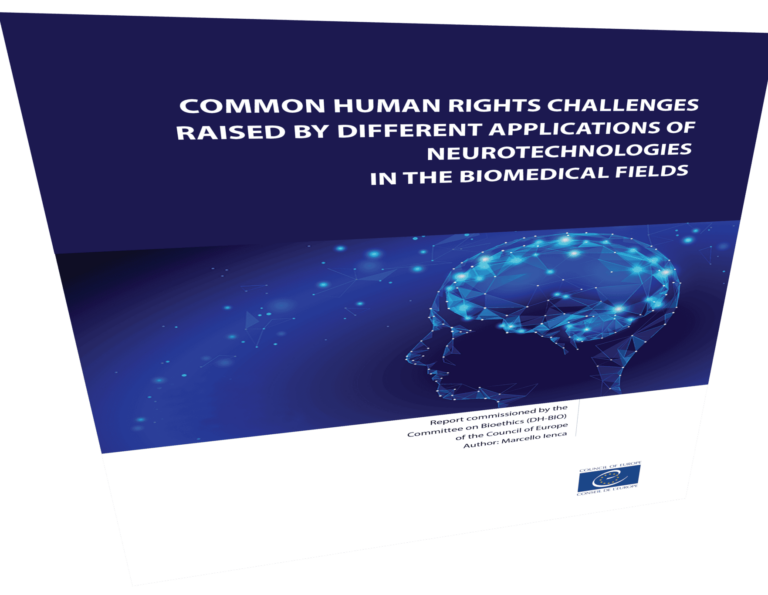Neurorights are human rights to protect and preserve the human brain and mind. A recent report commissioned by the Committee on Bioethics of the Council of Europe defines neurorights as “… the ethical, legal, social, or natural principles of freedom or entitlement related to a person’s cerebral and mental domain; that is, the fundamental normative rules for the protection and preservation of the human brain and mind. (p.44, Ienca, 2021)” The report describes the development of neurotechnologies over the past three decades as “the neurotechnology revolution (p.10, Ienca, 2021)” which has transformed various human rights issues from science fiction into a real-world challenge.
Neurorights consist of four human rights, cognitive liberty, mental privacy, mental integrity, and psychological continuity, which have different emphasis but overlap with each other.
- Cognitive liberty is based on the idea of freedom of thought and conscience. In terms of mental processes, humans have the right and freedom to determine their own mental processes. In relation to neurotechnologies, people have the right to access to neurotechnologies and to be protected from their coercive and unconsented use.
- Mental privacy is a type of information privacy. A significant part of neurotechnologies uses human brain data which contains information about human mental processes. The neuroright for mental privacy therefore protects the privacy of brain data that users of neurotechnologies create and leave on information processing systems.
- Mental integrity postulates the protection of a person’s mental integrity and the avoidance of harm. In addition to the first and second neurorights, the third neuroright protects the human brain and mind emphasising the principle of avoiding harm. For example, a brain-computer interface should never be abused or hacked.
- Psychological continuity is based on the idea of personal identity. The fourth neuroright protects human brain and mind preventing “unwanted breaks in the chain of personhood-causing mental states due to unauthorized exogenous interventions (such as, for example, through coercive neurostimulation). (P.55, Ienca, 2021)”
The four neurorights come from slightly different traditions of thought, complement each other and provide the basis for discussing human rights issues in neurotechnology.
Reference
Ienca, M. (2021). Common human rights challenges raised by different applications of neurotechnologies in the biomedical field. https://rm.coe.int/report-final-en/1680a429f3


